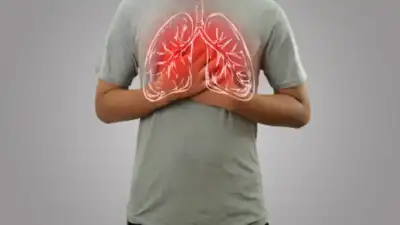A recent study conducted by researchers at Karolinska Institutet in Sweden has identified specific blood biomarkers associated with long COVID, particularly in patients experiencing severe respiratory symptoms. Published in Nature Immunology, the study offers insights into the biological mechanisms underlying persistent symptoms following SARS-CoV-2 infection.
The research team discovered a distinct plasma biomarker signature linked to breathlessness and other respiratory issues in long COVID patients. This signature involves apoptotic inflammatory networks centered on proteins such as CCL3, CD40, IKBKG, IL-18, and IRAK1. These proteins are associated with pathways related to cell cycle progression, lung injury, and platelet activation, suggesting a complex interplay between immune response and respiratory function in long COVID.
The identification of these biomarkers holds potential for improving the diagnosis and treatment of long COVID. By understanding the specific biological markers associated with persistent respiratory symptoms, healthcare providers may develop targeted therapies to alleviate these conditions.
All 265 participants in the study had been infected with COVID-19 during the initial phase of the pandemic—before vaccines were available. Researchers used cutting-edge tools to analyze thousands of proteins in their blood plasma and linked these findings to each patient’s reported symptoms. In addition, they performed immunological tests using flow cytometry to gain deeper insights into the immune system’s behavior.
